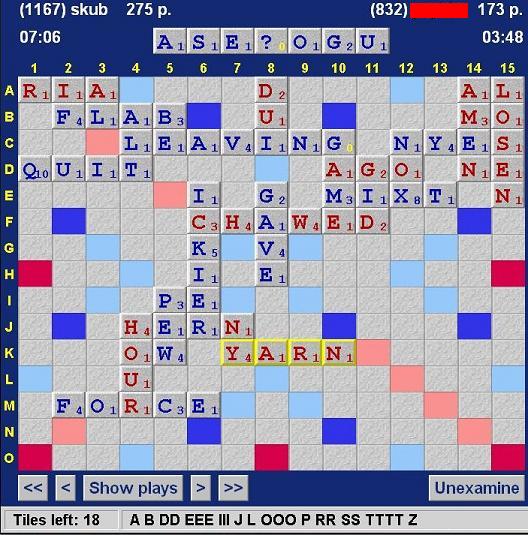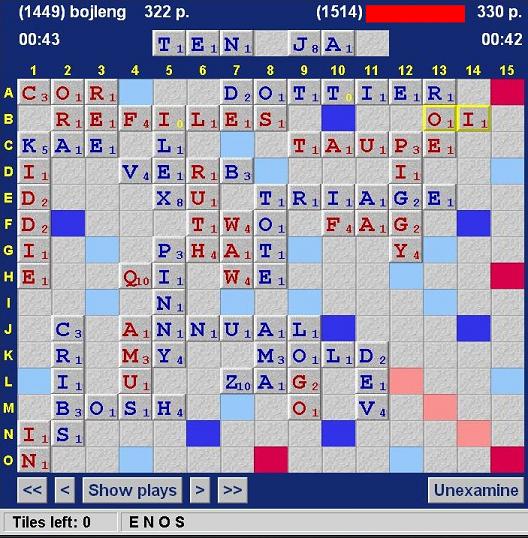Reader discretion is advised
+++
Every once in a while, for one reason or another, we are bound to play an ‘outlaw’ (or at least think about one)—a word that has already been in use but fail to claim its place in our holy book. And about why this outcast is [still] not on the list, we can only guess (if at all). What follows is just what I think about some of those bandits. Some people might find part of this a bit offensive, but it means what it means. Anyway, let’s start with some stories. All true.
*****
For some players, the realm of the longer words is alluringly challenging—or even hard to resist at times. And this is rarely just about scoring.
So there I was, thinking about setting up for my longest ever: PREREQUIREMENTS. But weighing that the tile-fairy had something else in mind, I settled down with prerequired (not a bingo but a four-mover instead: quire-quired-required-prerequired—cool, eh?). Still very much excited, right after the game I checked. Oops! I thought that if to require→requirement, then to prerequire→prerequirement (just in much the same way as prepayment, pretreatment or prearrangement). Of course this kind of logic is not supposed to always work. OK, my bad. While English being not my arterial language and even though we do have the equivalent of ‘prerequirement’ in our language (were there one in English), I just can’t really expect two different languages being adjacently comparable all the time, can I? Still, it seems only natural to think that this ‘fifteener’ is good (yes, that one is bad too).
[Illegal] vulgar words are like dangerously persistent walking undead—they are many, and they just keep coming. And it’s not because their probabilities of occurrence are high, or even the fact that somehow they are easy to remember, but all the more so because no matter how scrambled the tiles are, people find them easy to spot. Well, some people do.
Continue reading →
 We know that there are a number of ways for verbs to end up with ~ING,
We know that there are a number of ways for verbs to end up with ~ING,
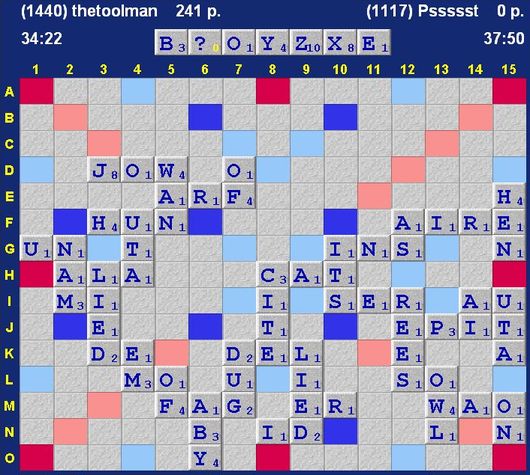
 It’s about time to pay the big guys a visit—watch them play. What good does this do to us? A lot. Vocabs, tactics, a couple of tricks.. It’s fun, nonetheless (it doesn’t matter who plays Red or Blue here, our concern is about the play).
It’s about time to pay the big guys a visit—watch them play. What good does this do to us? A lot. Vocabs, tactics, a couple of tricks.. It’s fun, nonetheless (it doesn’t matter who plays Red or Blue here, our concern is about the play).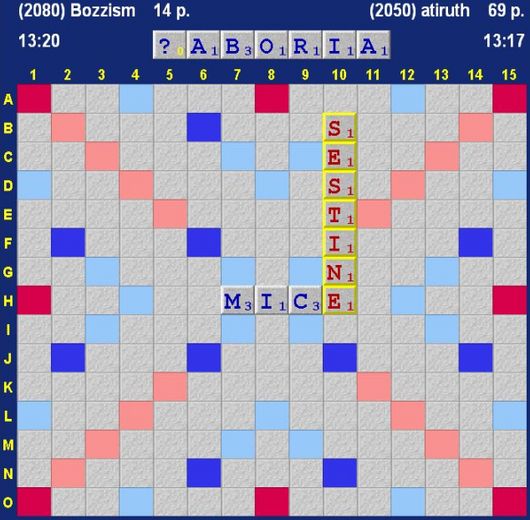
 In the endgame, sometimes we have just to accept the fact that it is the other player who will make the last move and do our best to use up as many tiles as possible (especially ‘the big guys’, if we have any) before our opponent closes the game.
In the endgame, sometimes we have just to accept the fact that it is the other player who will make the last move and do our best to use up as many tiles as possible (especially ‘the big guys’, if we have any) before our opponent closes the game.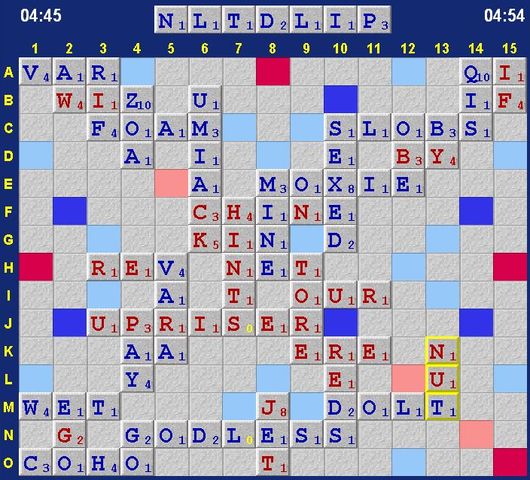
 One thing about long words is: we tend to miss them—they are hard to spot, easy to overlook. The words themselves don’t necessarily have to be difficult, but on many occasions the sheer length is a cause enough to make them ‘beyond thinking’.
One thing about long words is: we tend to miss them—they are hard to spot, easy to overlook. The words themselves don’t necessarily have to be difficult, but on many occasions the sheer length is a cause enough to make them ‘beyond thinking’.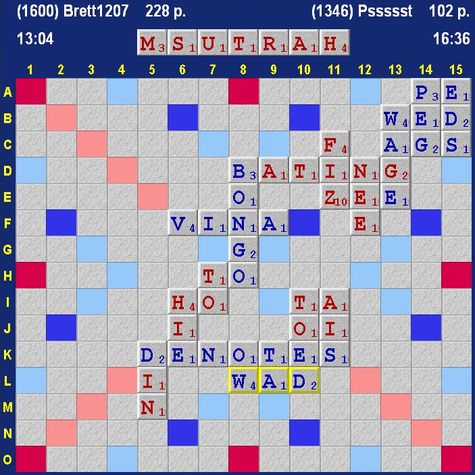
 Now why would anybody intentionally do that, really? The truth is, there are actually a number of reasons why we would, or should. But before we go to the whys behind such a stunt, let’s have a look at the diagram below.
Now why would anybody intentionally do that, really? The truth is, there are actually a number of reasons why we would, or should. But before we go to the whys behind such a stunt, let’s have a look at the diagram below.